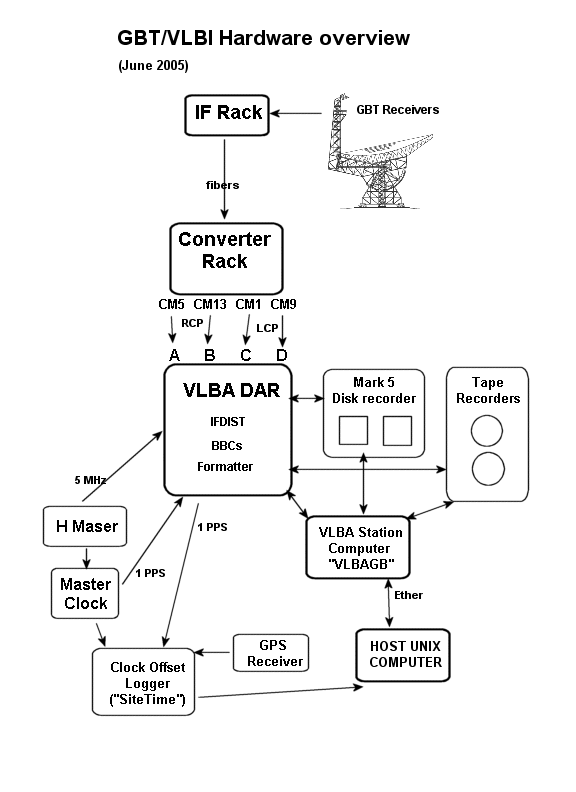
The digram shows the various hardware components of the VLBA system at the GBT.

|
The parts standard at all VLBA sites are the "VLBA DAR", the "Mark 5 Disk Recorder", the "Tape Recorders", and the "VLBA Station Computer." They are located in Room 204 in the Jansky Lab addition.
The "DAR", or "Data Acquisition Rack" is known as "Rack D" in VLBA jargon. The standard sites have racks "A", "B", and "C" as well, but we don't.
The DAR rack accepts four IFs from the GBT system, distributes these amongst 8 baseband converters, samples the signals and formats them for recording. The recording may be done either on the old tape drives or on the new Mark 5 disk recorder.
The Station Computer monitors and controls everything. At the standard VLBA stations, it controls the pointing of the telescope. Here at the GBT, the Station Computer only controls the data acquisition.
The user interface to the station computer is the "screens" package, which runs over a socket to any UNIX machine on the internet.
The log data is sent over a socket to a log host, which is normally the machine "jansky" in Socorro.
There is also a mechanism for receiving remote commands serviced by a remote command demon (rcmdd). This mechanism is used by the VLBA operators to send commands to any or all VLBA stations. We at the GBT use rcmd to send information on the status of the antenna and the weather to the station computer, so that it can put the data into its own log file.
The station computer has a filesystem of the host computer mounted via NFS, from which it gets the schedule files, and to which it sends a local copy of the log files.